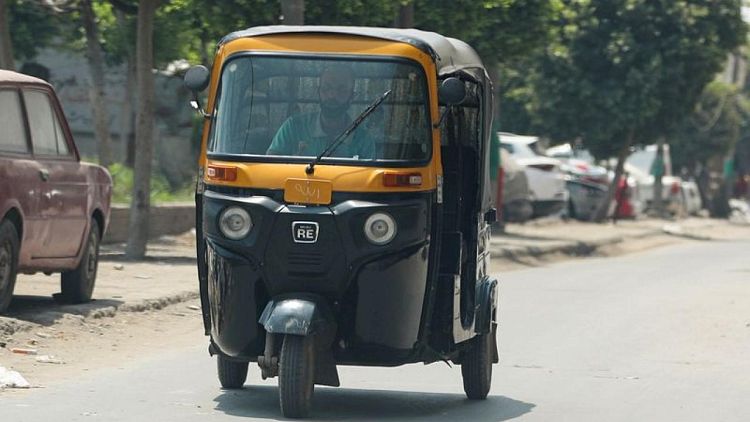By Malaika Tapper
CAIRO - To some they are a nuisance as they weave through traffic on Egypt's chaotic city streets or zip down narrow alleyways. To others they are a cheap way of getting from A to B in a fraction of the time it takes on public transport.
Now the government wants to regulate tuktuks - three-wheeled motorised rickshaws or mini-cabs - by introducing a national licensing system and nudging drivers to convert to natural gas-powered minibuses.
Officials estimate there may be as many as 4 million tuktuks in Egypt, but they are either unlicensed or licensed under a patchwork of local rules.
Often decked out with fluorescent lights and powerful sound systems, their mostly youthful drivers fearlessly venture onto highways, squeeze through improbable gaps in traffic and swerve between oncoming cars.
The government says licensing them will help trace those responsible for accidents or crimes, prevent underage driving and provide drivers with insurance and a pension.
Tarek Awad, the spokesperson for the initiative, said he expected half the drivers to choose to swap their rickshaws for minivans — what he called a "safe and civilized" means of transport.
Some drivers welcomed the licensing plan, but opposed trading in their tuktuks for minivans. Drivers and passengers say they are not easily replaced.
"An old lady with five or six bags and two children — is she going to hail a taxi for 30 pounds ($2)? Or is she going to take the tuktuk for five?" asked 39-year-old driver Hany Khamis Abd al-Qadr.
Public buses seldom enter dense residential neighborhoods, leaving people to find their own way home from major roads.
Drivers say even the minivans will be unable to get down narrower streets to drop people at their doors.
In tight market lanes in Cairo's Mokattam district, tuktuks are the only vehicles around.
"The cars can't get in," said driver Hossam Abdelmajid, 35.
For 56-year-old Mokattam resident Umm Kareem, tuktuks are a blessing.
"He will take you to the exact place you want to go," she said. "It's a mercy for people who are ailing or sick."
